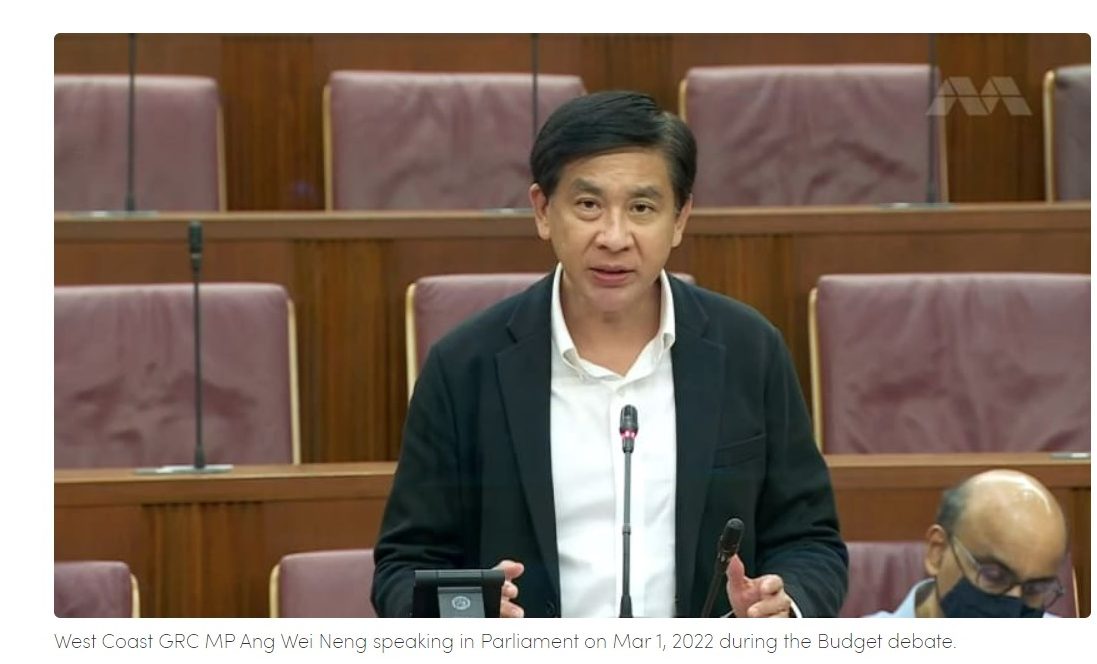Call it coincidence, but around a week ago, in a prospect meeting, the day job boss raised one of the sore points between us…
He mentioned that for nearly a decade I had refused to take up a course in accountancy or to become a member of the Institute of Singapore Chartered Accountants (ISCA), despite the multitude of offers to pay for the course and also the fact that if I were qualified, I’d become so much more employable in Singapore’s market for insolvency practitioners.
This meeting happened two days before a public outcry made MP Ang Wei Neng (West Coast GRC) feel obliged to apologise for suggesting that degrees from Singapore universities should come with a “timestamp” which would force graduates to “renew” the validity of whatever they had learnt in university. More on the story can be found at:


These two incidents highlight one of the most prominent issues in Singapore today – the question of qualifications. Singapore is obsessed with paper qualifications. We famously send our best and brightest to the world’s best universities and give them very cushy roles in government.
At the same time, we also complain that despite claiming that the National University of Singapore (NUS) is a world-class university, our graduates are losing out to those from the University of Rubber Prata P**dek (URPP), based in Sathyavani Muthu Nagar, that exquisite part of Chennai.
This question of qualifications makes it easier to see the fault lines in Singapore’s social fabric.
Think of us as being like Chicago in the movie Divergent, where we’re grouped into fractions based on our paper qualifications. There are the elites running the parts of Singapore that count. These are inevitably run by Oxbridge or Ivy League graduates. Then there’s the “Paper-less” who are like the “Factionless” in the movie. They do the grunt work.
Finally, you have those who occupy the space in between. This used to be staffed with graduates from local universities but over the last decade, this group has been claiming they’re being screwed by the Ivy League and Oxbridge graduates who have invited the graduates from URPP to take the jobs that were once the preserve of local graduates.
So, what is the solution?
The solution has thus been to rely on a very Singaporean strength – taking exams. To “protect” the local grads, the government has decided to “professionalise” certain professions by creating yet another layer of paper qualifications.
In theory, this means that if URPP graduates get into a profession at ground level, they will need to “professionalise” with “real” qualifications every so often. In theory, this would put them at a disadvantage to local grads who have spent a lifetime mastering the fine art of taking and ace-ing exams.
As with just about every proposal emerging from the Singapore elite, there is an amount of “good” in the idea. Doctors, lawyers and accountants, for example, need a licence to practice. Practitioners in law and accountancy are required to acquire a certain number of “professional points” a year, and such points can only come from attending training courses.
This is not a bad thing in as much as you want certain professions to be “up to date.” To paraphrase former US President Barack Obama, “if you need surgery, you will want your surgeon to know everything there is to know about that surgery.” It is imperative to ensure that practitioners in certain professions are up-to-date on whatever they need to be up-to-date on.
While it is good to encourage “life-long” learning and stay up to date on developments relevant to a profession, there is a point where more exams do not equal greater “professionalism” but jobs for unusable bureaucrats. Take the qualifying exams required of real estate agents and insurance professionals.
Think of these professionals as being like members of an actor’s union. I remember a speaker in a current affairs programme at my school telling us that “You need to be a member of the Actor’s Union in order to work as an Actor, and 90 per cent of union members are unemployed.” Aspiring real estate agents, for example, need to take a myriad of exams in order to work as real estate agents, and yet they won’t see a penny from them until they sell a piece of property.
The insurance business tries to justify this by “rebranding”. Go to enough insurance agency recruitment sessions, and you’ll find this recurrent refrain, “Insurance agents are a sunset industry – financial planning is a sunrise industry – you will be financial planners.” What is not said is that the job is essentially the same – you’re still selling financial products.
Sure, salespeople do need to know what they’re selling, and they need to be aware of a “code of ethics.” However, do you need more government-mandated exams to do what should be done in-house?
It’s always good to have a level of “professionalism” in anything that you do. But beyond a minimum, why impose more exams than necessary unless they have a specific bearing on the way the profession or industry should go? Adding exams beyond that benefits only repressed bureaucrats too afraid to take the plunge into doing anything useful.
A version of this article first appeared at beautifullyincoherent.blogspot.com
